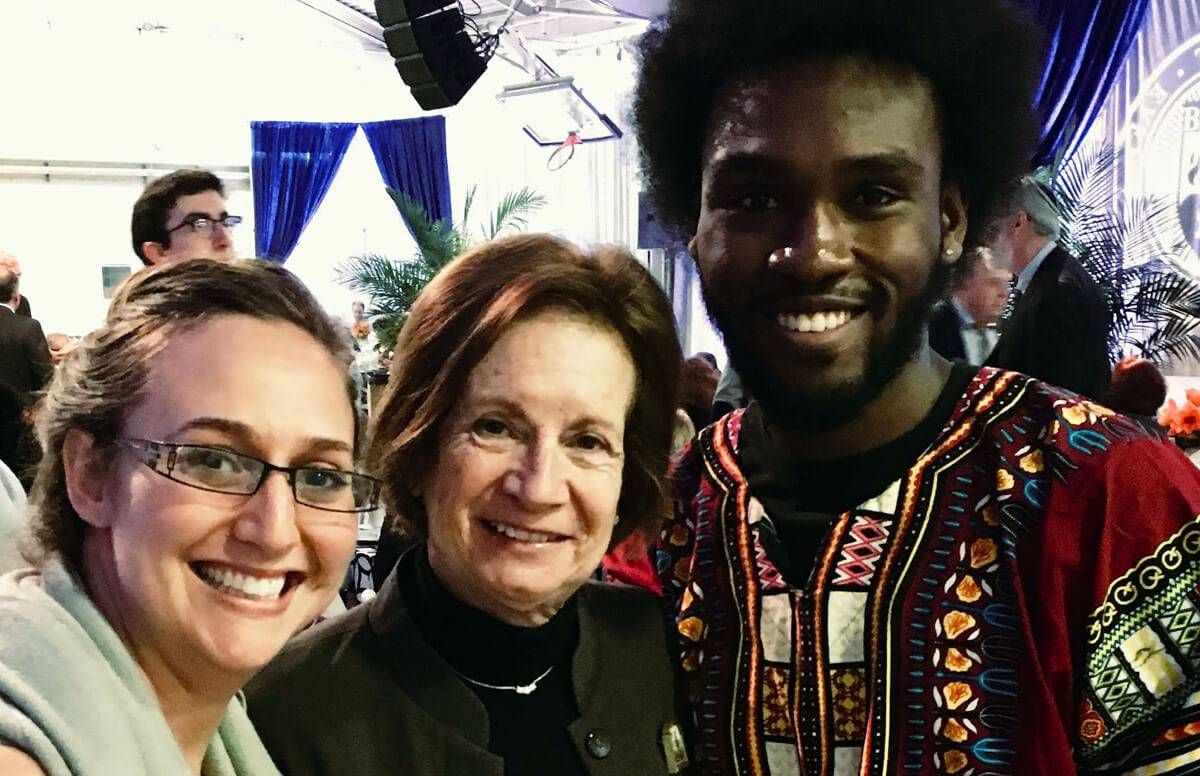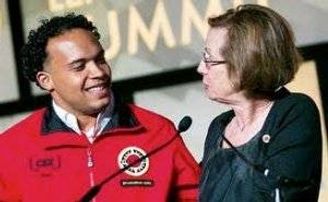How to Become a Mentor to Young People
Plus: reflecting on my times being mentored and mentoring others
Across the country today, millions will mark the Martin Luther King Day of Service by showing up to help others. Throughout the month, others will mark National Mentoring Month by thanking those who mentored them and considering how to become mentors themselves. (You might enjoy watching the Because You Mentored Me video from MENTOR below.)

Let me tell you a little about how I was mentored, how I have mentored others and how you can become a mentor, too.
What Every Child Needs
Both the Day of Service and the Month of Mentoring turn my thoughts to the next generation and to psychologist Urie Bronfenbrenner’s memorable words: “Every child needs at least one adult who is irrationally crazy about him or her.”
While I can’t describe any older adults outside my family as having been “irrationally crazy” about me when I was a child, I did have several who helped me become the now-73-year-old person I am today.
Some were my teachers, like Ms. Hess in sixth grade, who made me believe I could write poetry and Mr. Sloane, who encouraged me to run for president of my high school junior class and then school secretary. After I was elected, he helped me understand what it meant to serve the students I represented.
Among My Mentors: Ruth Bader Ginsburg
In college, professor Mark Chesler encouraged me to study and apply conflict theory to the civil rights movement, which led me to become a social justice activist. And in law school, professor Jeff Bauman, helped me get my first job. Last year, I had a chance to tell him — to his total surprise — how important he has been in the story of my life. I’m so glad I did.
A few years later, Ruth Bader Ginsburg, 12 years my senior, helped me begin my career as a women’s rights lawyer, opening the door to the meaningful work I’ve done since.
I never thought of these caring adults as “mentors” at the time. But as I think about that term today, I realize they were exactly that.
Did You Have a Mentor?
How about you? Did you have a mentor as a child or young adult? Sadly, there’s a good chance you didn’t. The National Mentoring Partnership (MENTOR) reported last year that 20 percent of adults 50 and older said they didn’t have a mentor when they were growing up.
But I wonder what the response rate would have been if the question was asked not about “mentors,” but about “caring adults outside your family.”
I wonder, too, if terminology explains why the same MENTOR survey found that adults over 50 are significantly less likely than younger adults to be willing to participate in a structured mentoring program. When asked about being willing to mentor informally, the generational difference disappears.
The Types of Mentoring I've Done
I’ve done both types of mentoring.

At Strive for College, a structured program, I’ve been a virtual mentor, helping a high school senior apply to college. I’ve also mentored several young people I’ve gotten to know through the Segal Citizen Leadership Program. And I’m informally coaching others who’ve reached out to me because of people we know in common.
The structured mentoring programs have an advantage: They connect me with young people I would otherwise never know. The resulting relationships go beyond the familiar, reaching across race, class, gender preference, geography and other divides.
Nine million young people in America grow up without a mentor’s guidance, and I’m pretty sure I’m not finding any of them through my informal mentoring. So this winter, I’m thinking about the organizations that can help me connect with young people across divides. I want to get the chance to make a difference in the life of someone I’d otherwise never meet.
How You Can Become a Mentor
If you’re interested in becoming a mentor, here are a few suggestions:
- Search the Mentoring Connector, the only national database of youth mentoring programs that connect volunteers to opportunities in their local communities
- If you want to volunteer as a coach to help at-risk youth find a positive pathway to adulthood, contact Lynette Smith of USA Boxing at [email protected]
- Find out how to become a Big Brother or a Big Sister to a young person in your community
- Sign up with Strive for College to help young people virtually — via video, phone and email — apply for college
- Sign up for information from Encore.org’s Gen2Gen campaign about other ways to get involved with young people
A final note: The Gen2Gen How to Live Forever Fund is now open for applications. If you have a fun, creative, intergenerational project in mind to bring generations together in your community, apply today for up to $250 to bring your idea to life.

